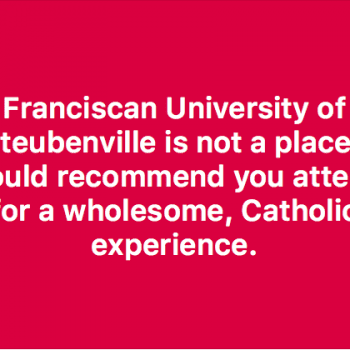¹ From the kindle edition of Justin Trudeau’s Common Ground. Published by HarperCollins on 20 October, 2014 in e-Book format.
² See Rocha’s piece to find a few links with Church apologies.
³ From the little I have found, it seems Archbishop Michael Peers of the Anglican Church of Canada apologized on 6 August, 1993. At the same time, one of the first (of many) apologies from the Catholics came on 24 July, 1991. This comes from a recent statement of the permanent council of the Canadian Conference of Catholic Bishops, which reads, in part: –
Over 20 years ago, on July 24, 1991, the Oblates of Mary Immaculate delivered an apology at the Lac Ste Anne pilgrimage site. This was the first of many similar statements from Catholic Bishops and others in leadership positions who, over the years, have apologized “for having been part of a system which, because of its historical privilege and assumed superiority did great damage to Native Peoples in Canada” and in which “the primal bond inherent within families was violated as a matter of policy.”1 Recognizing the call to be one people of God, truly catholic and inclusive of all cultures, they lamented that “(we) have contributed to the loss of (Indigenous) language and culture and to the burden of shame.” In solidarity with those who have gone before us, “we carry immense sorrow for having contributed to this tragedy.”
⁴ Gregory XVI, Mirari Vos, 15 August, 1832, paragraphs 5 and 14.
⁵ Leo XIII, Libertas, 20 June, 1888, paragraphs 17 and 18:
There are, indeed, some adherents of liberalism who do not subscribe to these opinions, which we have seen to be fearful in their enormity, openly opposed to the truth, and the cause of most terrible evils. Indeed, very many amongst them, compelled by the force of truth, do not hesitate to admit that such liberty is vicious, nay, is simple license, whenever intemperate in its claims, to the neglect of truth and justice; and therefore they would have liberty ruled and directed by right reason, and consequently subject to the natural law and to the divine eternal law. But here they think they may stop, holding that man as a free being is bound by no law of God except such as He makes known to us through our natural reason. In this they are plainly inconsistent. For if – as they must admit, and no one can rightly deny – the will of the Divine Law-giver is to be obeyed, because every man is under the power of God, and tends toward Him as his end, it follows that no one can assign limits to His legislative authority without failing in the obedience which is due. Indeed, if the human mind be so presumptuous as to define the nature and extent of God’s rights and its own duties, reverence for the divine law will be apparent rather than real, and arbitrary judgment will prevail over the authority and providence of God. Man must, therefore, take his standard of a loyal and religious life from the eternal law; and from all and every one of those laws which God, in His infinite wisdom and power, has been pleased to enact, and to make known to us by such clear and unmistakable signs as to leave no room for doubt. And the more so because laws of this kind have the same origin, the same author, as the eternal law, are absolutely in accordance with right reason, and perfect the natural law. These laws it is that embody the government of God, who graciously guides and directs the intellect and the will of man lest these fall into error. Let, then, that continue to remain in a holy and inviolable union which neither can nor should be separated; and in all things-for this is the dictate of right reason itself-let God be dutifully and obediently served.
There are others, somewhat more moderate though not more consistent, who affirm that the morality of individuals is to be guided by the divine law, but not the morality of the State, for that in public affairs the commands of God may be passed over, and may be entirely disregarded in the framing of laws. Hence follows the fatal theory of the need of separation between Church and State. But the absurdity of such a position is manifest. Nature herself proclaims the necessity of the State providing means and opportunities whereby the community may be enabled to live properly, that is to say, according to the laws of God. For, since God is the source of all goodness and justice, it is absolutely ridiculous that the State should pay no attention to these laws or render them abortive by contrary enact menu. Besides, those who are in authority owe it to the commonwealth not only to provide for its external well-being and the conveniences of life, but still more to consult the welfare of men’s souls in the wisdom of their legislation. But, for the increase of such benefits, nothing more suitable can be conceived than the laws which have God for their author; and, therefore, they who in their government of the State take no account of these laws abuse political power by causing it to deviate from its proper end and from what nature itself prescribes. And, what is still more important, and what We have more than once pointed out, although the civil authority has not the same proximate end as the spiritual, nor proceeds on the same lines, nevertheless in the exercise of their separate powers they must occasionally meet. For their subjects are the same, and not infrequently they deal with the same objects, though in different ways. Whenever this occurs, since a state of conflict is absurd and manifestly repugnant to the most wise ordinance of God, there must necessarily exist some order or mode of procedure to remove the occasions of difference and contention, and to secure harmony in all things. This harmony has been not inaptly compared to that which exists between the body and the soul for the well-being of both one and the other, the separation of which brings irremediable harm to the body, since it extinguishes its very life.
⁶ Pius XI, Divini Redemptoris, 19 March, 1937, paragraphs 16, 29, 32, and 37.
But God has likewise destined man for civil society according to the dictates of his very nature. In the plan of the Creator, society is a natural means which man can and must use to reach his destined end. Society is for man and not vice versa. This must not be understood in the sense of liberalistic individualism, which subordinates society to the selfish use of the individual; but only in the sense that by means of an organic union with society and by mutual collaboration the attainment of earthly happiness is placed within the reach of all.
In this same Encyclical of Ours We have shown that the means of saving the world of today from the lamentable ruin into which a moral liberalism has plunged us, are neither the class-struggle nor terror, nor yet the autocratic abuse of State power, but rather the infusion of social justice and the sentiment of Christian love into the social-economic order.
We need but recall with what constant firmness and energy Our Predecessor, Leo XIII, vindicated for the workingman the right to organize, which the dominant liberalism of the more powerful States relentlessly denied him.











